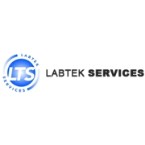Chemicals and Reagents
Chemicals are substances of sufficient purity for use in qualitative and quantitative elemental analysis as trace elements or for experimentation. Reagents are substances or compounds which are added to bring about a chemical reaction or are added to see if a reaction will occur. Some are just a single element but most are compounds, of organic or inorganic origin. It would be impossible to give a comprehensive list of all chemicals and reagents used in laboratories since it would be too long and would depend on the nature of the laboratory's work. Chemicals can be categorised as to whether they have strong bases (such as sodium hydride or sodium amide) or weak bases (like potassium carbonate or sodium hydroxide). Other experimental work would entail distinguishing between acids like sulphuric hydrochloric or alkalis. Some commonly used substances are solutions, staining and dying substances such as iodine or ethidium bromide. Salts, minerals, sugars and solvents include agar, ethanol or acetone. More specialised substances would be needed for molecular biology experiments or techniques like chromatography. No laboratory, whether it is research, educational or industrial, would be able to function effectively without chemicals and reagents. Some are basic components but others are highly specialised.
-
Lab Unlimited UK
View company profileThe Carl Stuart Group was founded in 1984 by Stuart and Gillian Smith. From a small beginning our business has grown to encompass many services and products, covering different market sectors and geographical regions. The focus of our business, however, remains the same. We are a customer orientated company and strive to meet and exceed your expectations in everything we do.
As our portfolio grew we decided to present and promote our product and technical service offerings under distinct brands. The Laboratory instrumentation, consumables and technical & integration services are promoted under Lab Unlimited.
The Lab Unlimited product portfolio offers laboratory/analytical products from more than four hundred leading manufacturers. A substantial part of this offering is published on this very site. We also produce a printed catalogue that can be requested by emailing us.
-
Labtek Services Ltd
View company profileLabtek Services Ltd established in 1987 this year celebrates 30years supplying the Laboratory & Quality control environments. We work with suppliers from around the world to provide our clients with the highest quality of product at the most competitive price.Specialists in the Food & Beverage & Dairy Industries our client base ranges from the small independant processor to the Multi-National organisations. LABTEK Services is ISO9001:2015


